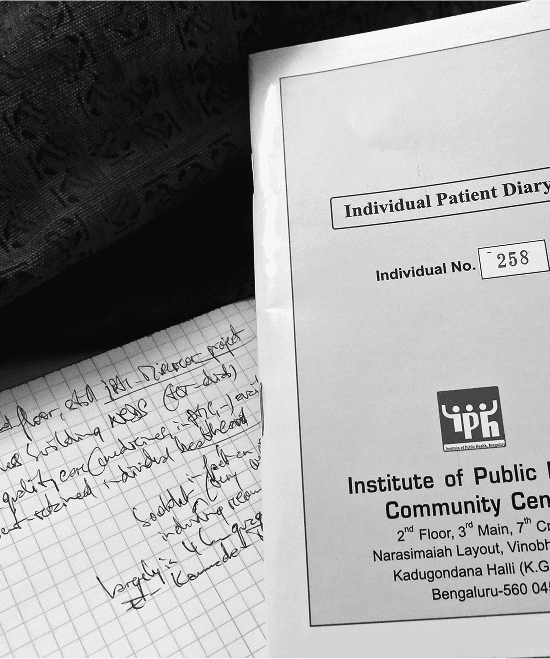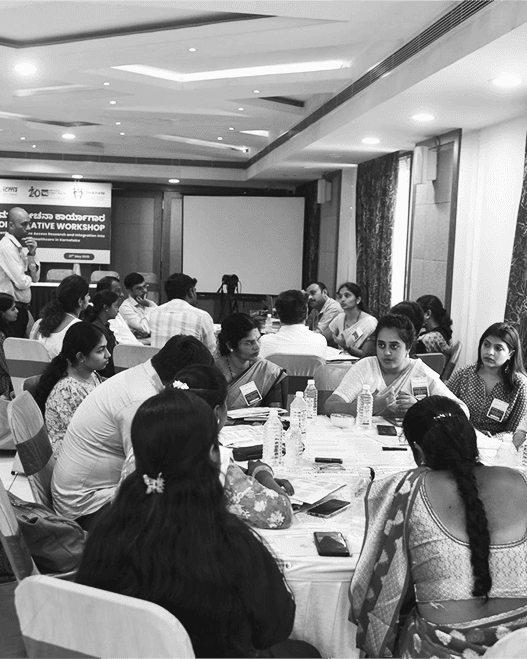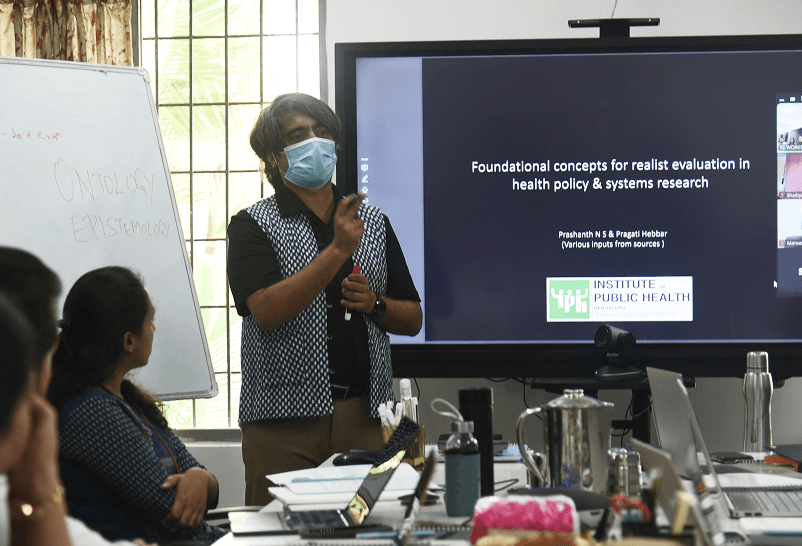
Centre for Health Systems (CHS)
Introduction
The Centre for Health Systems aims to be a leading hub for health systems research and policy influence in India, shaping evidence-based decision-making. It provides a space that nurtures researchers, fosters innovative methodologies, and integrates health systems thinking into policymaking. The Centre promotes collaboration and contributes to discussions on global health systems. Recent activities include a rapid assessment of Bengaluru’s health infrastructure and governance was undertaken, alongside an evaluation of the National Mental Health Program. Standard Operating Procedures and Information, Education, and Communication (IEC) materials were developed for the Gruha Arogya initiative led by the Government of Karnataka. Capacity-building initiatives were implemented to equip stakeholders across sectors with systems thinking approaches and to strengthen collaborative public health action. Government-funded health insurance schemes were evaluated, with a focused study on the effectiveness of grievance redressal mechanisms within these programs across India.

Themes/Work Areas
Maternal Health
In Maternal Health, it works on evaluating maternal mortality rates and related health services.
Mental Health
Mental Health theme addresses the management of self-harm and the evaluation of mental health services to strengthen health systems.
Primary Health Care
The Primary Healthcare theme emphasises ensuring accessible and affordable services through strong community engagement.
Oral Health
Oral Health efforts concentrate on policy agenda setting and integrating dental health into primary health care.
Urban Health
This theme looks at strategies to improve health conditions in urban areas.
Chronic Conditions
This theme looks at multi-sector actions against NCDs and tuberculosis management.
Centre-Level Activities
CHS aims to refine program theories through evidence synthesis from longitudinal studies in Karnataka, Telangana, and Arunachal Pradesh to support health policy design, implementation, and evaluation.


Projects in CHS
REALISE
This research study aims to evaluate and explain the implementation of the National Programme for prevention and control of Non-Communicable Diseases (NP-NCD) and set up a Realist Evaluation Advancement Lab for Implementation Strategy Explanations (REALISE) to improve the capacity of researchers, public health and relevant cadre officials within the health system to evaluate and strengthen policies using theory driven enquiry methods.

Centre Team
Key People

Dr. Lathadevi Chilgod
Fellow (Asst Prof) & Centre Head

Dr. Prashanth N S
Senior Fellow & Co-Lead CHS

Dr. Pragati B Hebbar
Senior Fellow

Dr. Tanya Seshadri
Senior Fellow

Dr. Murali Krishna
Senior Fellow

Dr. Vaibhav Agavane
Fellow (Asst Prof)

Dr. Chandrashekar Kottagi
Fellow (Asst Prof)

Dr. Meena Putturaj
Fellow (Asst Prof)

Ms. Angel Sudha
Fellow (Asst Prof) & PhD scholar

Dr. Yogish C B
Fellow (Asst Prof) & PhD scholar

Dr. Kaushik Siddappa
Fellow (Asst Prof) & PhD scholar

Dr. Rajeev B R
Fellow (Asst Prof) & PhD scholar

Ms. Kranthi Vysyaraju
PhD scholar
Collaborators
The Centre for Health Systems collaborates with public sector bodies, academic institutions, and research organisations to strengthen health systems. It works closely with the Department of Health and Family Welfare, the National Health Mission Karnataka, and other government stakeholders to co-develop, implement, and evaluate health policies and interventions aligned with state priorities. Through these collaborations, the centre contributes to knowledge generation, capacity building, implementation research, and policy influence. This ensures that public health action is evidence-based and responsive to community needs.